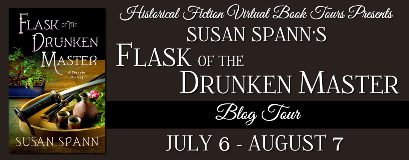All five of the Mancini sisters led fascinating lives, but what led you to choose Marie as your novel’s heroine?
Yes, each Mancini sister is fascinating in her own right, and I’d love to write more stories about them. I cannot resist historical women who struggled against the established order. Marie simply fought a more dramatic battle than her sisters (with the exception of Hortense). Marie’s stout belief in true love and her refusal to comply with her greedy uncle, Cardinal Mazarin, nearly got her killed. There is every indication that King Louis was truly in love with her. I just became fascinated by her personality; you might even say she enchanted me!
What draws you to write about historical characters from the 17th century?
In the seventeenth century, the world was on the brink. The Protestant Reformation was underway, the absolute power of kings was in question, there was an emerging sense of personal liberty taking seed in the minds of the people. The main powers were colorful people, and because the globe had not yet been thoroughly explored, their stakes were high. It is an era rich with literary opportunities, but there is one more reason I love writing about it…the clothes were prettier then than at any other time!
As a literary sort myself, I thought the scenes in which Marie and the king tease one another and form a bond over reading a book were a lot of fun. Were they based on something that actually happened? If not, how did that subplot originate?
One of King Louis’ courtiers compared the hold that Marie Mancini had over the king to the hold that the Sorceress Armida held over Rinaldo in the popular sixteenth century epic titled Jerusalem Liberated. Therefore, comparing Marie and Louis to these literary characters, and letting them share the book in my novel, seemed natural. Fortunately, a savvy librarian (such as yourself!) obtained an English translation of Jerusalem Liberated for me - it is a wonderful piece of literature. The author was Italian poet Torquato Tasso, so Marie, who was very well-read, would have been familiar with his work.
I was fascinated to learn that Marie wrote a memoir as well as astrological almanacs. How unusual was this for a woman of her time?
Very unusual! Scholars look to Marie as one of only a handful of women who published in that century. Interestingly, her sister Hortense is one of the other females who published.
Enchantress of Paris showed me an aspect of Louis XIV’s life that was new to me – his youth, when he didn’t yet have the confidence to rule – and introduced me to some lesser-known characters from French history. What were some intriguing things you learned about the characters or era in the course of your research?
My first novel, Girl on the Golden Coin, was set in England, where the characters and plot were both heavily influenced by the protestant reformation and England’s independence from the rest of Europe. France was still Catholic, and the Catholic Church in Rome still controlled much of the politics of Europe. Power is one of the main themes in both of my novels, so learning about the power structure in France was new for me.
In the novel, King Louis believes that Marie can help make him a better man and king. Do you feel that she accomplished this?
Absolutely. The people who have heard of Marie Mancini before now may only know her as the woman King Louis did not marry. But Cardinal Mazarin died before she was married off in Rome, and King Louis wanted her to stay in France. People don’t realize that Marie had the opportunity to refuse her marriage and stay with King Louis as his mistress. In studying her life, I believe she rejected King Louis because he failed to use his own power and stand up for her when he had the chance. King Louis learned his lesson. He not only came to utilize his own power, he expanded it, and then he kept everyone around him under his strict control.
How was the writing process for your second novel different from the process for Girl on the Golden Coin?
I took a leisurely eight years to hone my writing skills and compose Girl on the Golden Coin, where Enchantress of Paris took only nine months! I followed the same process of historical research, but the writing itself came quickly this time (thankfully). I think this is partly because Marie leapt out of history for me. Marie was bold and daring, much easier to figure out, where Frances Stuart had been discreet and secretive.
~
Enchantress of Paris is published on August 4th by Thomas Dunne/St. Martin's Press ($25.99/C$29.99, hardcover, 318pp). See also my review for Girl on the Golden Coin, Marci Jefferson's previous novel. Visit her website at www.marcijefferson.com.















